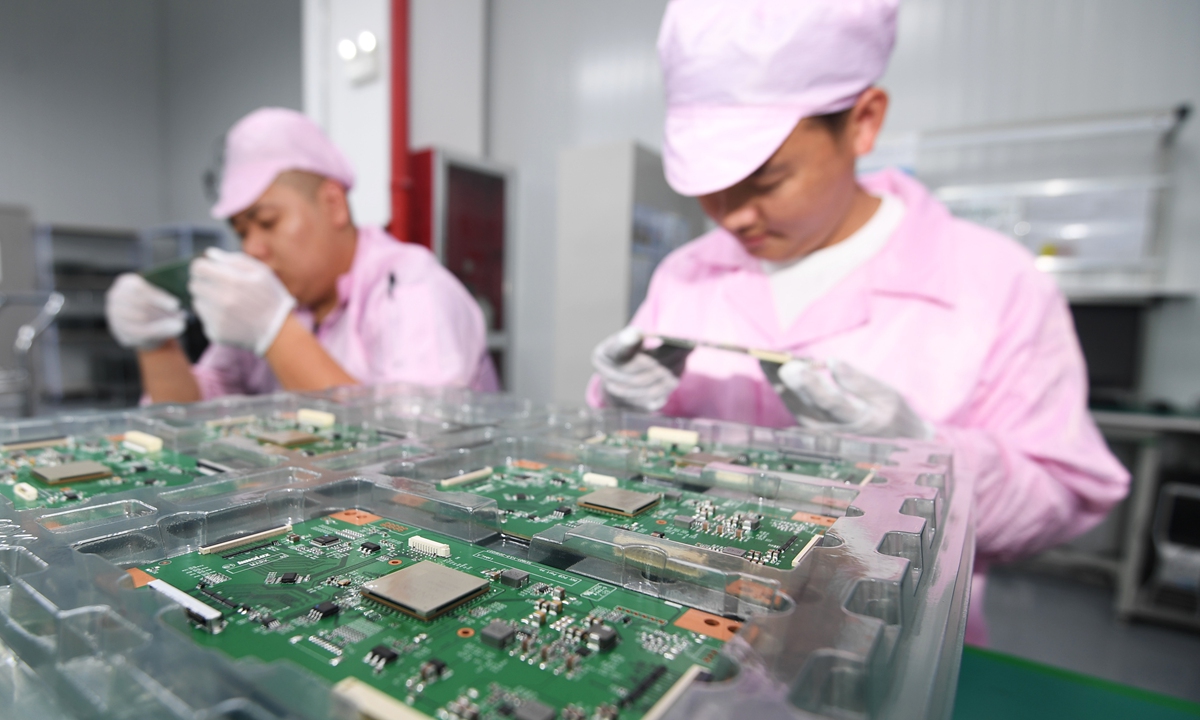China to include carbon-based materials into key industrial development plan: ministry

Workers make semiconductors at a company in Guiyang, Southwest China's Guizhou Province on Tuesday. In recent years, China has witnessed the blossoming of its chip industry, thanks to generous government policy support, as well as enthusiastic entrepreneurs and venture investors. Photo: cnsphoto
China will incorporate carbon-based materials into the national 14th Five-Year Plan (2021-25) for the raw-material industry, incorporate silicon carbide composite materials and carbon-based composite materials into the industrial technology innovation related development plan, in an effort to achieve near-term breakthroughs in core technologies subject to international restrictions, the Ministry of industry and information technology said on Tuesday.
The move also aims to improve the quality of new carbon-based materials, as well as to promote industrial chain modernization, said the ministry.
With silicon-based chips nearing their performance limit, researchers have been exploring the use of alternative semiconducting materials over the past years to design future generation computer chips, industry observers said.
Carbon nanotube arrays are considered to be one alternative that could be used to fabricate large-scale integrated circuits, with the performance exceeding those of conventional silicon transistors with similar dimensions, according to a report from the Xinhua News Agency.
Carbon nanotubes are a promising candidate to replace silicon in producing transistors. Researchers around the world, including those from IBM and the Massachusetts Institute of Technology, have been working in the field, the report said, citing a researcher named Zhang Zhiyong.
The support to the carbon-based materials also comes amid US' sanctions on technology exports to China, and China has been ramping up efforts to achieve self-sufficiency in core technologies such as semiconductors over the past two years.
The semiconductor industry is now a national top priority. The 14th Five-Year Plan calls for an increase in research and development spending of more than 7 percent annually in those five years, focusing on key technology areas, including semiconductors.
Global Times


